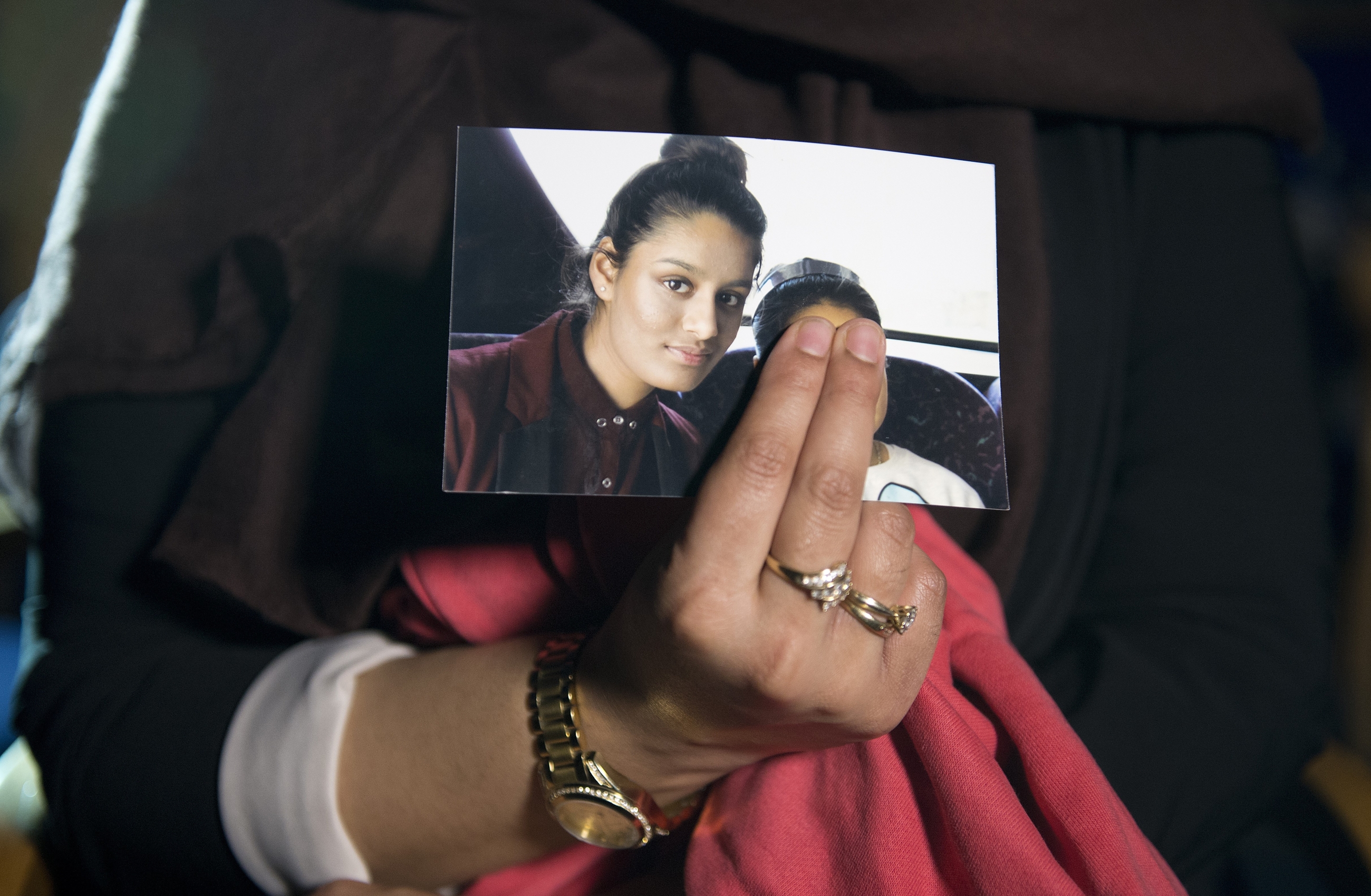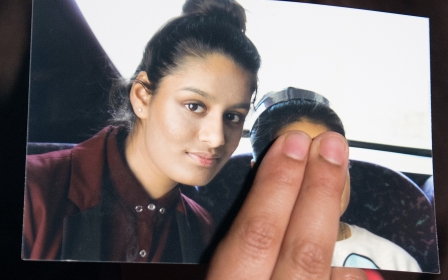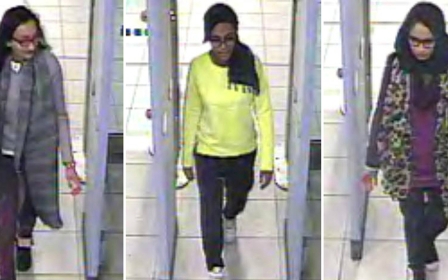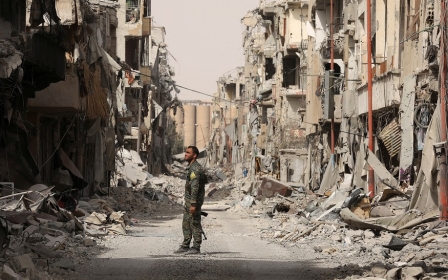British teen seeking return from IS gives birth inside Syrian refugee camp

A British teenager calling on the UK to let her return four years after she joined the Islamic State (IS) group has given birth to a baby boy, her family said on Sunday.
"We understand that both she and the baby are in good health," Shamima Begum's family said in a statement shared by their lawyer Mohammed Akunjee.
They said they have not yet been able to have direct contact with her.
Begum, now 19, sparked a national debate about whether she should be allowed to return from Syria when she said in an interview published in The Times that she wanted to come home for the sake of her baby.
New MEE newsletter: Jerusalem Dispatch
Sign up to get the latest insights and analysis on Israel-Palestine, alongside Turkey Unpacked and other MEE newsletters
She left Britain alongside Amira Abase, 15, and Kadiza Sultana, 16, who were all from the east London neighbourhood of Bethnal Green. They joined another girl from the area who had gone to Syria a year earlier.
Writing in The Sunday Times, British Home Minister Sajid Javid said he would "use all my power" to stop anyone who joined IS from returning but admitted they would not make anyone stateless by stripping their citizenship if they did not have citizenship in another country.
Sir Peter Fahy, former chief constable of Greater Manchester police, told the UK broadcaster: "The biggest challenge if she [Begum] did come back will be how the police will keep her safe and how she wouldn't be some sort of lightning rod for both Islamic and far-right extremists."
Others have insisted that Begum should be allowed to return, arguing that she and the other girls were underaged teens groomed by IS propagandists online to join the group as wives for fighters.
Begum has been kept in the al-Hawl camp in Syria after fleeing the last territory held by IS which is under assault by the US-backed Syrian Democratic Forces, which mostly consists of Kurdish fighters.
She said she wanted to return to the UK because she had already seen two children die during her time living under IS.
Baby 'blameless'
Begum's family told British broadcaster ITV that she should face the legal system in Britain.
They said they were most concerned about the safety of the baby, who is "blameless in these events".
The head of Britain's foreign intelligence agency MI6, Alex Younger, said at a security conference in Munich on Friday that while Begum would be considered a security threat, "British nationals have a right to come to the UK".
MEE reported on Friday that any attempt to block her return could be thwarted due to a recent legal ruling that ordered the government restore citizenship to two British men who, like Begum, are of Bangladeshi origin.
The Home Office had cited "terrorism-related and national security grounds" for stripping both men of their citizenship, making them stateless.
One of the men was left stranded in Turkey where he said he had been involved in aid work helping Syrian refugees and was innocent of any wrongdoing.
But the Special Immigration Appeals Commission (SIAC) ruled in November that the Home Office had wrongly assessed that the two men were dual British-Bangladeshi nationals.
The ruling has implications for many more cases involving British nationals who have been subjected to the highly controversial and legally contentious citizenship deprivation orders in recent years because of government concerns about the threat of suspected fighters returning from Syria.
Some 14 people were deprived of citizenship on the grounds that their presence in the UK was "not conducive to the public good" in 2016.
But the number swelled to 104 people in 2017, according to government figures.
Middle East Eye delivers independent and unrivalled coverage and analysis of the Middle East, North Africa and beyond. To learn more about republishing this content and the associated fees, please fill out this form. More about MEE can be found here.




